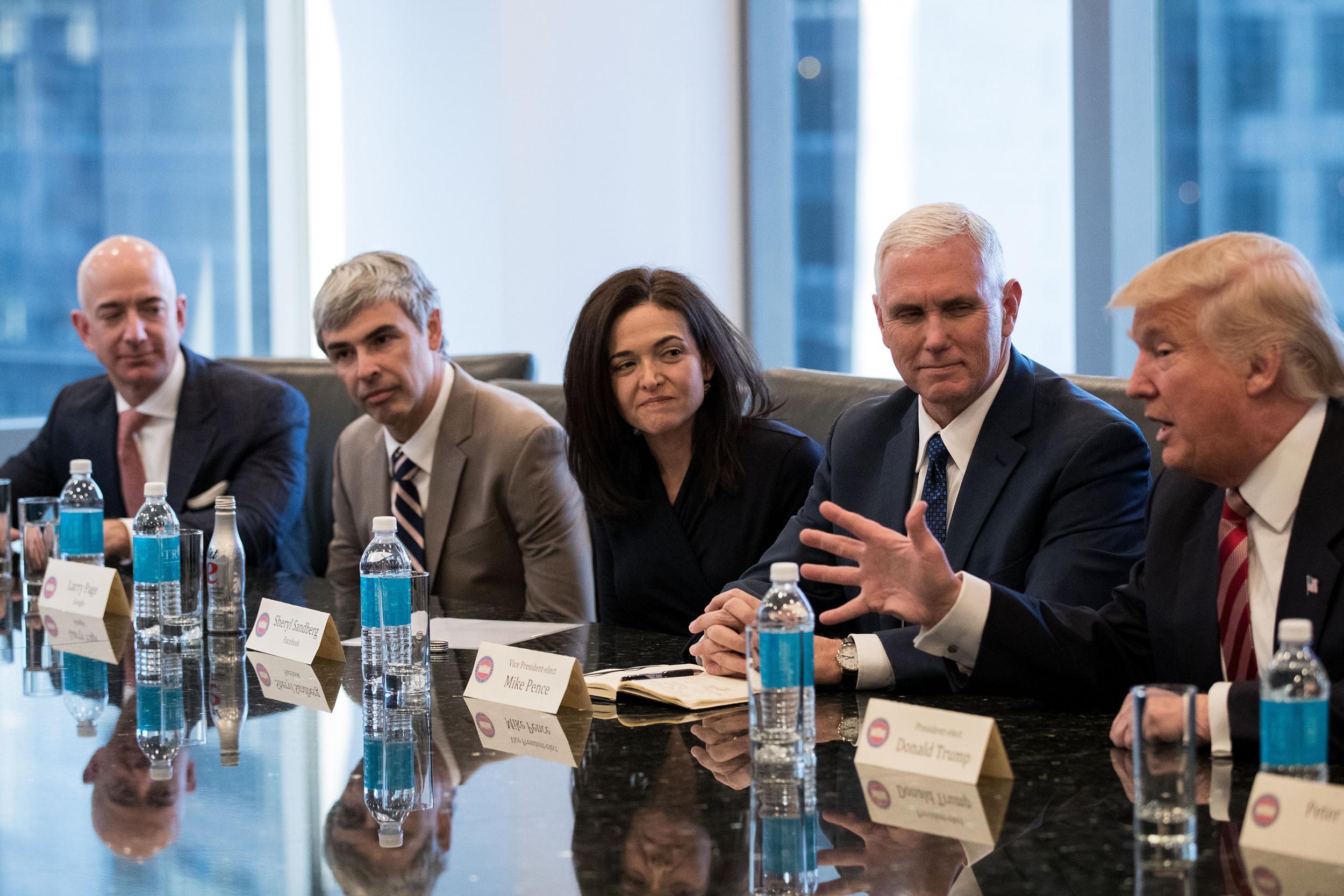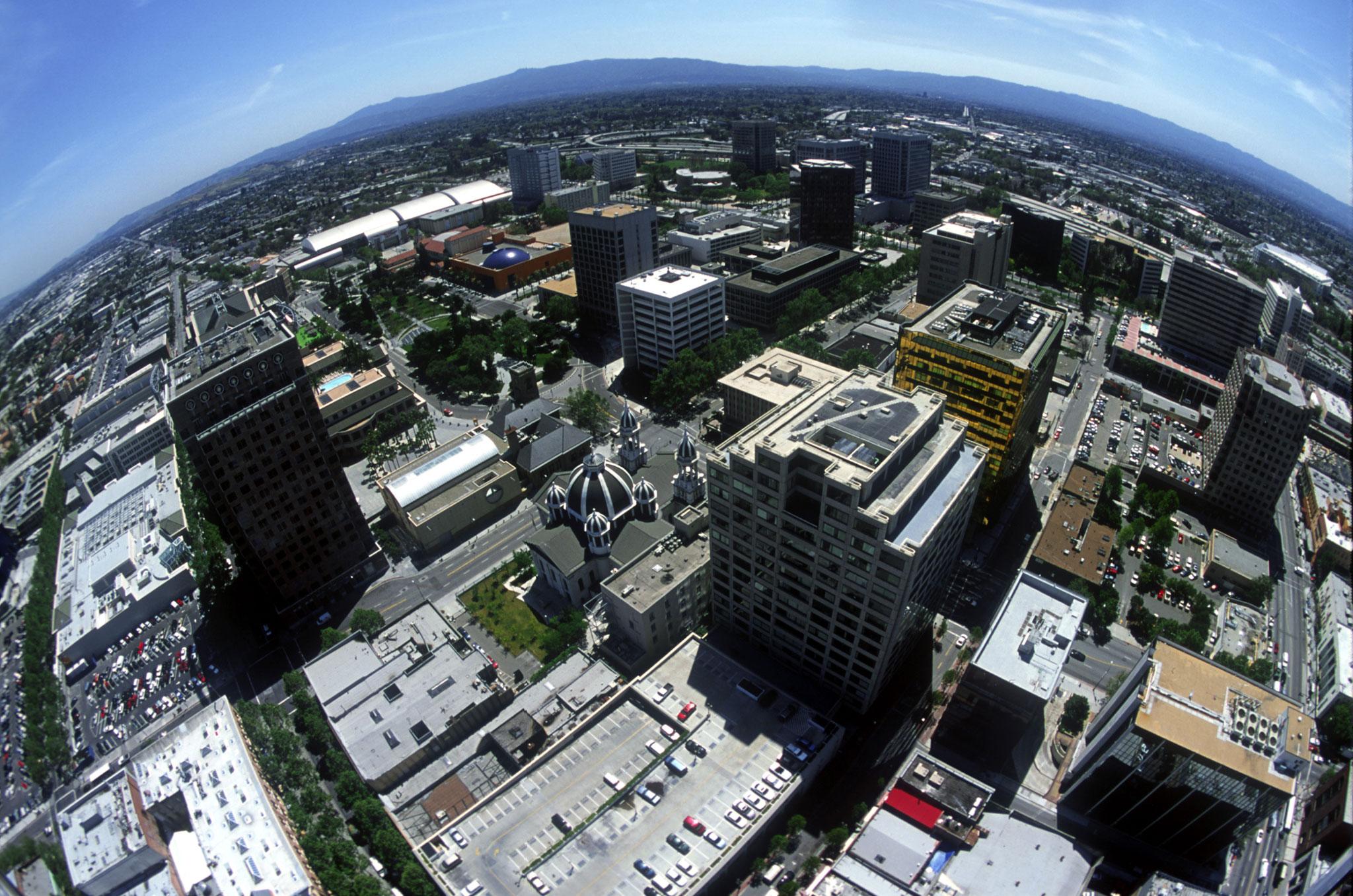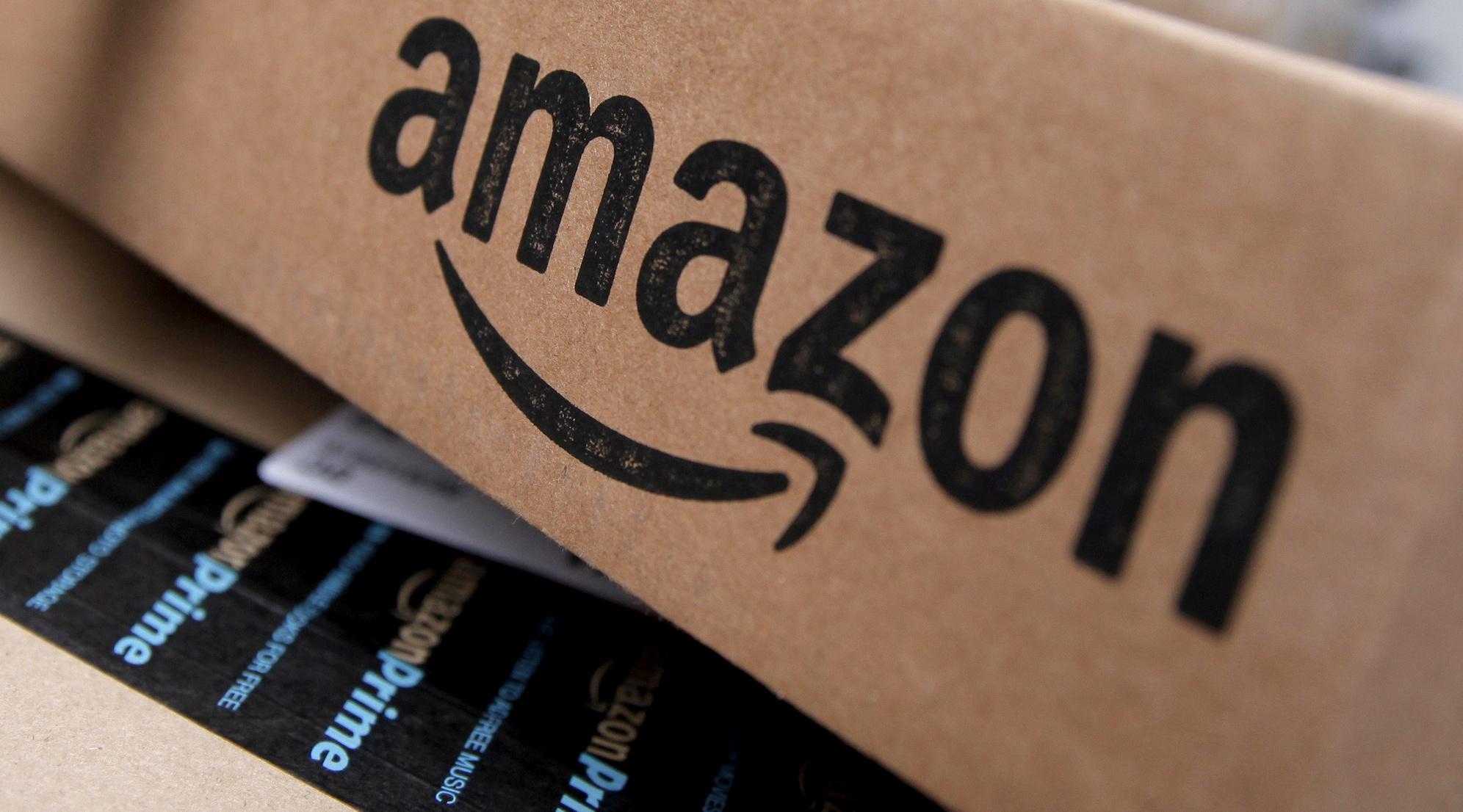Donald Trump is right: Silicon Valley needs to invest in America
If tech companies agree to put a modest amount of money into projects outside their own sector, they will create jobs, bolster communities and contribute to greater social cohesion in America – Trump is right to nudge them to do so

Your support helps us to tell the story
From reproductive rights to climate change to Big Tech, The Independent is on the ground when the story is developing. Whether it's investigating the financials of Elon Musk's pro-Trump PAC or producing our latest documentary, 'The A Word', which shines a light on the American women fighting for reproductive rights, we know how important it is to parse out the facts from the messaging.
At such a critical moment in US history, we need reporters on the ground. Your donation allows us to keep sending journalists to speak to both sides of the story.
The Independent is trusted by Americans across the entire political spectrum. And unlike many other quality news outlets, we choose not to lock Americans out of our reporting and analysis with paywalls. We believe quality journalism should be available to everyone, paid for by those who can afford it.
Your support makes all the difference.When Donald Trump met with technology leaders in December to tell them he wanted them to create jobs in the US, their heads probably tilted to the side, as if you tried to explain physics to your dog and she just watched your lips moving and wondered when, among all those unfamiliar sounds, she was going to hear the word “treat”.
Tech leaders aren’t in the business of creating jobs. They’re in business to help us do more with less. They like innovation and disruption and software eating the world but people – er, not so much.
In his own Chance-the-gardener way, the President-elect might be on to something. His victory was a middle-finger salute from those who feeling left out by technology and globalisation. The tech industry’s trend is toward leaving more people out by automating yet more lower-level jobs while creating only high-skilled jobs. It’s becoming clear that if tech doesn’t change that trajectory, the consequences might look something like the Visigoths attacking Rome in 410.
Apple chief executive Tim Cook, Amazon’s Jeff Bezos, Alphabet’s Larry Page and a bunch of their peers slinked into Trump Tower on 14 December for a meeting with the President-elect, who doesn’t use a computer, probably has never used Uber and no doubt thinks team messaging app Slack is what he finds at the tips of his gloves. If you can imagine how top neurosurgeons would react to a lecture on the brain by a TV chef – well, that’s how the tech leaders must have felt in this session.
Trump praised the chief executives for the great work they do but once the doors closed, he reportedly told the group they need to create more US jobs – and not just for artificial intelligence specialists in Silicon Valley. He apparently emphasised that to make a difference, tech would need to invest in boots-on-the-ground jobs in the middle of the country.

He’s right, in that tech companies played a have major role in creating the yawning wealth gap between digital America and analogue America. Look at one indicator: revenue-per-employee across different industries.
Wal-Mart, which operates staff-intensive retail stores spread across the planet, employs 2.1 million people. Its revenue per employee stays pretty constant at $220,000 (£180,000). General Motors, a major manufacturer, does better: its revenue per employee is around £570,000.
Now look at Facebook. Its revenue per employee is $1.4m, double GM’s. Apple bludgeons Facebook’s performance with $2.1m in revenue for each person who works there – 10 times that of Wal-Mart.
But…Apple, the most valuable company in America, directly employs just 66,000 – the number of people who go to see a typical NFL game. Meanwhile, Wal-Mart’s stock is about the same price it was in 2012. At companies such as Facebook and Apple, far more money is flowing into far fewer hands. And most of those hands are in tech corridors in California’s Bay Area or the north-east.
It’s hard to completely blame tech chief executives for this disparity. This is how business is set up in America. We reward productivity and efficiency – i.e. getting more from less. But Trump is asking business – as Steve Jobs might have put it – to think different. Trump is telling tech companies numbers aren’t everything and don’t account for making a huge swath of the nation miserable. For that matter, the numbers won’t mean anything at all if the sense of being left out tears apart the social fabric and ignites a furious backlash. The disrupters might find themselves disrupted.
And Trump’s right.
IBM chief executive Ginni Rometty told the meeting her company will create 25,000 more jobs in the US. But her promise is a sign of tech’s obtuse thinking about jobs. Writing in USA Today a day before meeting Trump, Rometty said: “This is not about white collar vs. blue collar jobs but about the ‘new collar’ jobs that employers in many industries demand, but which remain largely unfilled.” She pointed out that 500,000 jobs are open in the tech sector because companies can’t find people with the right skills.
But here’s essentially what Rometty and a whole lot of tech CEOs are saying – and I’m liberally paraphrasing, here: if only the unemployed and undereducated dumb asses would take some courses in Python coding, they could move to San Francisco, solve our programmer shortage and we’d pay them a hundred grand.
Yet how realistic is that? The US is a highly educated society, and still just one-third of Americans are university graduates. A large swath of the country will never find their way into the tech ecosystem. And, by the way, a lot of people actually want to live in places that have little traffic and an absence of Asian-fusion vegan restaurants.

What can tech CEOs really do about jobs? There was vast wealth in that room with Trump, and there is so much more spread throughout the tech sector. The industry needs to promote the idea that some of its wealth should be deployed to build or keep alive schools, parks, bookstores, newspapers, orchestras, bowling alleys, small manufacturers or whatever else helps communities thrive and can’t be reduced to an artificial intelligence bot. The profit margins might suck, but if you can break even and sustain it, you’d be giving back in a way that helps the country and might even save your industry down the line.
Jeff Bezos is setting a pretty good example. Amazon employs more people than most tech companies its size. The count today is 268,900, and Amazon’s revenue per employee is about £380,000 – less than GM’s. More significantly, in 2013 Bezos spent £200m to acquire The Washington Post. The Post is a terrible business. But it’s a public good, and it’s labour-intensive. Bezos is worth $66 billion, so to him the purchase was like you or me buying a pair of shoes. But Bezos took the kind of action there that can make a difference outside of technology.
It’s an old-school way of thinking, but it deserves a new look. Back at the turn of the 20th century, one of the most progressive chief executives in America was a guy named George F Johnson. He ran Endicott-Johnson Shoes, then one of the biggest shoemakers in the world. Johnson built homes for his workers and sold them at cost. For the community, he built a library, a golf course, two hospitals and funded a minor league baseball team. When asked why he did such costly things, Johnson was known to say, “I’m out to make all I can of this concern, not take all I can out of it.”
This was in my hometown. To this day, there are statues of Johnson there, and streets named after him. He is a legend and a hero.
One hundred years from now, will anybody say the same about the people who met with Trump that day?
© Newsweek
Join our commenting forum
Join thought-provoking conversations, follow other Independent readers and see their replies
Comments